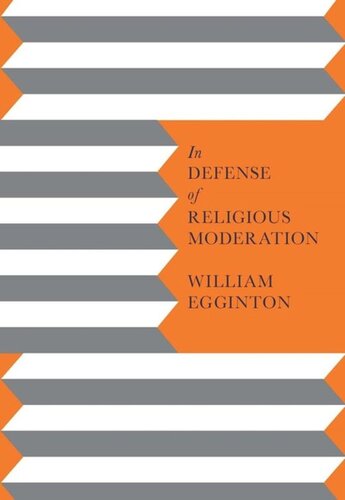

Most ebook files are in PDF format, so you can easily read them using various software such as Foxit Reader or directly on the Google Chrome browser.
Some ebook files are released by publishers in other formats such as .awz, .mobi, .epub, .fb2, etc. You may need to install specific software to read these formats on mobile/PC, such as Calibre.
Please read the tutorial at this link: https://ebookbell.com/faq
We offer FREE conversion to the popular formats you request; however, this may take some time. Therefore, right after payment, please email us, and we will try to provide the service as quickly as possible.
For some exceptional file formats or broken links (if any), please refrain from opening any disputes. Instead, email us first, and we will try to assist within a maximum of 6 hours.
EbookBell Team

4.0
86 reviewsEgginton questions whether fundamentalists and atheists truly oppose each other, as they both believe that the methods we use to understand the world are all versions of an underlying master code. The most effective weapon against such thinking is religious moderation, a way of believing that questions the very possibility of a code of codes. The moderately religious are best suited to protect science and politics from fundamentalist attack.
William Egginton laments the current debate over religion in America, in which religious fundamentalists have set the tone of political discourse—no one can get elected without advertising a personal relation to God, for example—and prominent atheists treat religious belief as the root of all evil. Neither of these positions, Egginton argues, adequately represents the attitudes of a majority of Americans who, while identifying as Christian, Jewish, or Muslim, do not find fault with those who support different faiths and philosophies.
In fact, Egginton goes so far as to question whether fundamentalists and atheists truly oppose each other, united as they are in their commitment to a "code of codes." Fundamentalists—and stringent atheists—unconsciously believe that the methods we use to understand the world are all versions of an underlying master code. This code of codes represents an ultimate truth, explaining everything. The moderately religious, with their inherent skepticism toward a master code, are best suited to protect science, politics, and other diverse strains of knowledge from fundamentalist attack and to promote a worldview based on the compatibility between religious faith and scientific method.
In his latest book, William Egginton laments the current debate over religion in America, in which religious fundamentalists have set the tone of political discourse—no one can get elected without advertising a personal relation to God, for example—and prominent atheists treat religious belief as the root of all evil. Neither of these positions, Egginton argues, adequately represents the attitudes of a majority of Americans who, while identifying as Christians, Jews, and Muslims, do not find fault with those who support different faiths and philosophies. In fact, Egginton goes so far as to question whether fundamentalists and atheists truly oppose each other, united as they are in their commitment to a "code of codes." In his view, being a religious fundamentalist does not require adhering to a particular religious creed. Fundamentalists—and stringent atheists—unconsciously believe that the methods we use to understand the world are all versions of an underlying master code. This code of codes represents an ultimate truth, explaining everything. Surprisingly, perhaps the most effective weapon against such thinking is religious moderation, a way of believing that questions the very possibility of a code of codes as the source of all human knowledge. The moderately religious, with their inherent skepticism toward a master code, are best suited to protect science, politics, and other diverse strains of knowledge from fundamentalist attack, and to promote a worldview based on the compatibility between religious faith and scientific method.